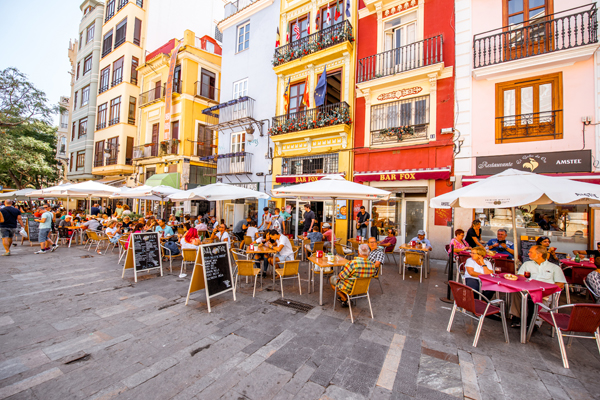
1. Understanding the Driving Culture
Driving in Valencia, like in most parts of Spain, is generally safe and straightforward. However, it’s important to understand the local driving culture. Spanish drivers are known for their aggressive driving style, so be prepared for close overtaking and frequent use of horns. Also, be aware that traffic rules are strictly enforced, especially speed limits and drink-driving laws.
2. Choosing the Right Car
Compact cars are recommended for driving in Valencia due to the narrow streets, especially in the old town. Also, manual transmission cars are more common in Spain, so if you’re not comfortable driving one, make sure to request an automatic when renting a car.
3. Parking in Valencia
Finding parking in Valencia can be challenging, especially in the city center. Most streets have metered parking, but spaces are often limited. There are also several public parking lots where you can park for a fee. Parking is generally more expensive in the city center and cheaper in the outskirts.
4. Driving with an International License
Foreigners can drive in Spain with an international driving permit (IDP) along with their valid home country’s driving license. However, this is only valid for six months. After that, you will need to obtain a Spanish driving license.
5. Obtaining a Spanish Driving License
To get a Spanish driving license, you will need to pass a theory test and a practical driving test. The theory test is available in English. However, the practical test is usually conducted in Spanish. It’s recommended to take a few driving lessons to familiarize yourself with the local driving rules and conditions.
6. Navigating Roundabouts
Roundabouts are common in Valencia and can be confusing for newcomers. The general rule is that vehicles already in the roundabout have the right of way. Also, remember to signal your exit in advance to let other drivers know your intentions.
7. Watch Out for Pedestrian Zones
Valencia has many pedestrian zones where driving is not allowed. These areas are usually marked with signs or road markings. Be sure to respect these zones to avoid fines.
8. Be Prepared for Toll Roads
Some highways in Spain are toll roads. Be prepared to pay tolls either in cash or by credit card. Alternatively, you can get a toll transponder, which allows you to pass through toll gates without stopping.


